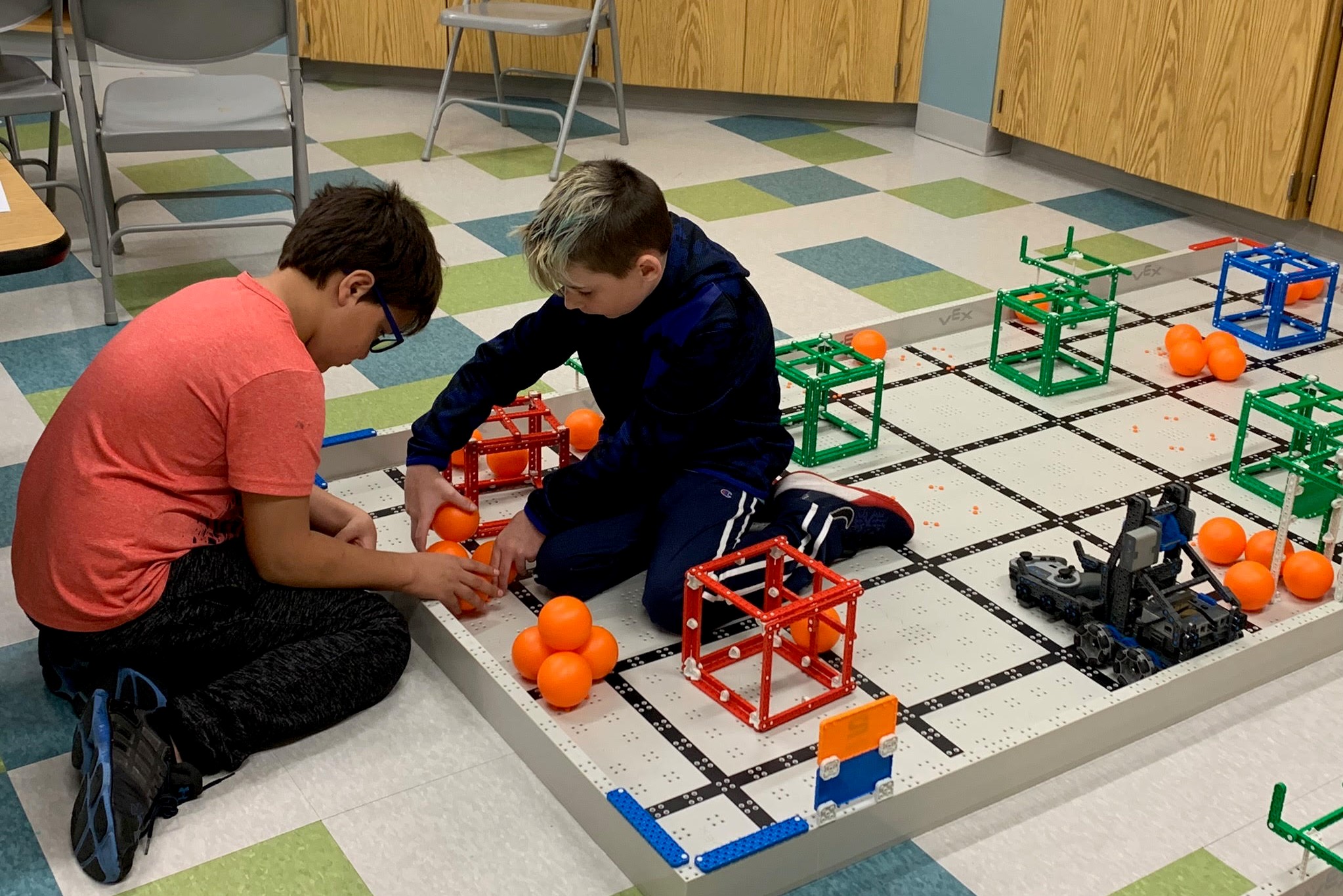
School districts around Indiana have been surveying their students’ families to gauge who will come back, and what could make them change their minds. (WFIU/WTIU News)
As the coronavirus pandemic continues to unfold, Indiana schools are making plans for students to return to classes as early as late July, but with questions remaining about how instruction will happen -- whether online, in person, or a mix of both -- some parents say they won’t send their kindergartners to school this fall.
“Deciding what to do about getting the kids back to classes – it’s a heavy load to carry at the moment,” said Angelica Knight, an Indianapolis parent to 6-year-old twins Hayleigh and Jeremiah. She’s decided to hold off on kindergarten this fall and send them to straight to first grade next year.
“I want them to be able to actually walk into kindergarten and learn and play,” Knight said. “But with the virus, I just can’t let it happen for them right now.”
It’s a decision backed by an Indiana law that does not mandate kindergarten attendance – thus allowing children up to age 7 to stay home. Indiana is one of 33 states that leave the kindergarten option to parents. Although it’s still early to tell how many parents nationally are making the tough choice that Knight did, educators are sounding the alarm that young children could get behind on important learning skills by missing kindergarten.
School districts around Indiana have been surveying their students’ families to gauge who will come back, and what could make them change their minds.
Dave Marcotte, executive director of the Indiana Urban Schools Association, a group of 37 school districts in urban settings, said members expect from 5% to 35% of families not to return to schools this fall.
“This is very concerning,” Marcotte said, adding that lower enrollment could mean less funding to schools’ budgets.
To mitigate parent concerns about returning to the brick-and-mortar setting, all districts within the Urban Schools Association are also working to create an online instructional option to enroll and retain students of all ages, Marcotte said.
For Wayne Township Schools, that online choice “is going to be a must,” said Superintendent Jeff Butts. A virtual program was already available for high schoolers, and beginning this fall, the same will be offered to students in all grades.
“It’s going to be a challenge with this pandemic, but we plan to have teachers who are doing in-person classes, and others who are strictly teaching remotely,” Butts said. “It helps add options for students and families, depending on what they want.”
Butts said he’s confident that most of his students will return. Although Wayne Township projects out-of-district enrollments could drop by 20%, kindergarten registration numbers are up from last year, he said, and “a more relaxed feeling” people in the community have developed toward the virus in recent weeks is expected to positively affect feelings about returning to classes.
But even with online options, not all families are on board.
“At this point, I’m looking at this as an opportunity to educate my kids at home in the way my wife and I think is best,” said Ted Rosen, a dad of a soon-to-be kindergartner and three other children in Fort Wayne.
Rosen said his family will begin “complete and formal” homeschooling for at least the next academic year. Making that choice wasn’t easy, he said, but “this is an option, and we think it’s the best, safest one we have right now.”
It could become a larger trend around the state.
“There is absolutely an increased interest in homeschooling right now,” said Tara Bentley, Executive Director of the Indiana Association of Home Educators. “I expect that as more parents understand what the return to classes will look like where they’re at, that interest will increase even more.”
Calls and emails from parents inquiring with her organization about homeschooling have doubled in recent weeks, Bentley said, including from parents of young kids who would start kindergarten this fall. Although some of this interest has been sparked by the pandemic, Bently said the virus has been a tipping point for many parents who were also considering the option before.
“For parents of kindergarten students trying to make the decision, right now would be a good opportunity to get the basics of home-based education started,” she said.
Kids who should enter kindergarten for the first time could find themselves behind their peers for years to come if they skip out, said Shyrelle Eubanks, a senior policy analyst with the National Education Association.
Kindergarten is critical for literacy and numeracy skills, she said, especially for children who might not have had high quality early childhood education.
“We have many concerns about students returning to school – whether they will at all, and what it will be like when they get back,” Eubanks said. “So many districts are still developing their reopening plans, and we really hope high quality, early childhood options are offered so families are able to provide their kindergartners with the support they need.”
Dianna Wallace, executive director of the Indiana Association for the Education of Young Children, said that kindergarten-age students need opportunities for social and emotional development, often aided through building relationships with teachers and peers. Those skills can be learned in a classroom, but also at home and via e-learning, she said.
While the association hasn’t considered kindergarten enrollment to be an issue in Indiana in years past, Wallace acknowledged that the coronavirus has “added new challenges and uncertainties.” Parents feeling comfortable with the schooling options, she said, should help ensure young students are getting quality education, regardless of the means.
“I wish I could say we have a crystal ball to know what’s going to happen with the reopening of school corporations in the fall,” Wallace said. “But with all the phenomenal work we’re seeing already, it looks like parents are going to have a lot to choose from.”
Personnel at southern Indiana’s Naval Support Activity (NSA) Crane are producing hand sanitizer for Department of Defense employees.
A Crane official says they’ve spent about $20,000 on new equipment and reconfigured an existing facility to produce the sanitizer.
“One of the ways we identified we could continue to support warfighters in the short term was to set up a new line to produce hand sanitizer,” says Jason Gay, commodity manager for Navy ordnance at Crane Army.
“It's significantly different from what we normally do, which is producing, remanufacturing and maintaining munitions.”
Gay says his staff can produce about 2,000 gallons of sanitizer a day.
It’s being used by Department of Defense personnel including civilians both in the United States and abroad to fight the coronavirus outbreak.
For the latest news and resources about COVID-19, bookmark our Coronavirus In Indiana page here.










